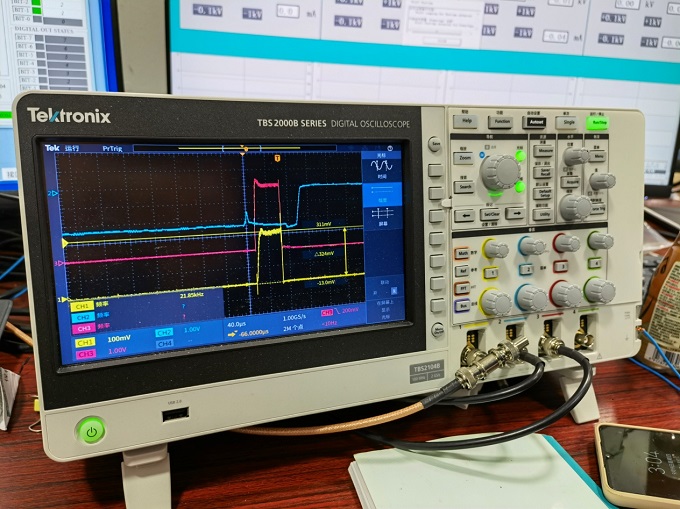






On September 9, 2021, the technical teams from Shanghai Institute of Applied Physics, CAS and Shanghai EPq Particle Equipment Co., LTD report that a 6.5mA beam has been successfully extracted in DTL accelerating cavity (the RFQ and APF model) in the 7 MeV medical proton linear injector. This great progress was finally achieved with their joint efforts. And also, Tsinghua University, Peking University, China Aerospace Corporation and Shanghai Kelin Technology Development Co., LTD participated in the project about the design and manufacture.

Because the protons have a Bragg Peak type energy loss distribution, proton therapy is the latest radiotherapy technology, which can accurately destroy tumors and protect normal tissues to the greatest extent. The proton therapy unit, APTRON, which is made in Shanghai Institute of Applied Physics, is located in proton Center of Ruijin Hospital in Jiading New Town, and will soon be used in clinical trials. To speed up the project, the proton linear injector was imported from the United States. Also, in order not to rely on imported core technology and equipment, Shanghai Institute of Physics has developed domestic proton linear injector, and supported by the "13th Five-Year" Digital Diagnosis and Treatment Special Fund, the Ministry of Science and Technology and Shanghai Lianhe Investment Group.
The domestic proton linear injector is composed of ECR ion source, four-wing RFQ acceleration section and DTL (APF model) accelerating cavity acceleration section. Based on alternating phase focusing principle, APF type acceleration cavity is adopted in DTL acceleration section. Compared with traditional Alvarez DTL, the DTL without the magnetic focusing element significantly reduces the processing difficulty and construction cost, and is conducive to commercial promotion. Dr. Xiucui Xie, Shanghai Applied Physics Institute developed physical design software with independent intellectual property rights for APF accelerator, and introduced two innovations of "dimension reduction" and "robustness", thus improving the reliability of APF structure.
Since 2016, the technical team is lead by professor Yuehu Pu, and has completed a multi-stage study, including physical design, electromagnetic design, mechanical design, processing and construction, cavity magnet measurement, high-frequency sophisticated and beam loading test, etc. At present, this domestic proton linear injector has produced proton beams of mA magnitude, and is running through APF accelerator cavity.
—Contributed by English Translation & Edit Group, SINAP